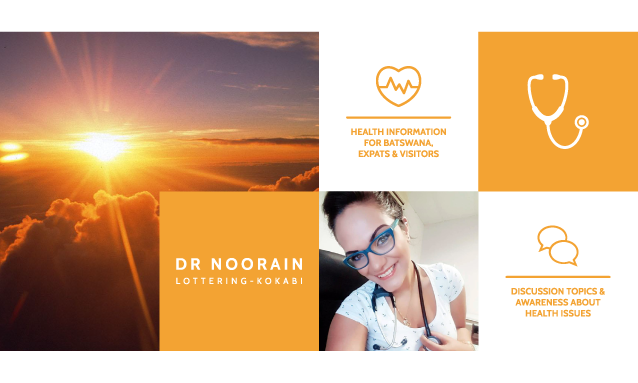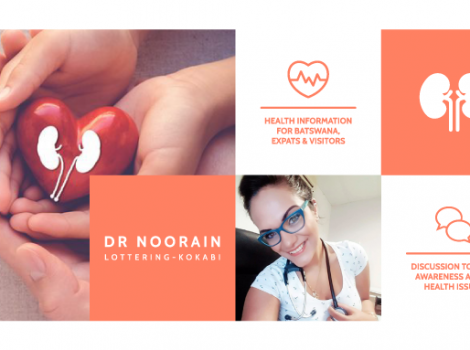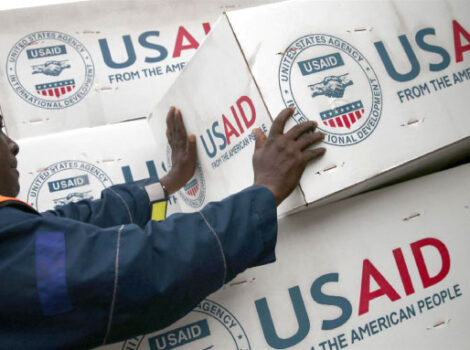
Feeling The Heat: An article on coping with heat waves
Summertime is one of the most wonderful times of the year in Botswana, a time for fun in the sun bringing out our shorts; summer dresses, making memories having a braai, laughing and splashing in the pool. However, summertime can also be one of the most dangerous times of the year posing a few health risks if those temperatures go way up.
These health risks are namely: the commonly known heat rash, dehydration, heat exhaustion and the most scary of them all-heat stroke.
Heat rash occurs when the sweat ducts in our skin get clogged and as a result sweat cannot escape from the surface of the skin resulting in inflammation of the skin that feel almost rough and prickly (particularly worse in people who already have eczema).
Dehydration refers to depletion in the body’s water and usually occurs when the body is losing more fluid than what has been put in., this is most commonly characterised by having dry mouth, dry lips, decreased saliva and minimal urine toilet visits and in severe cases confusion and lethargy.
Heat exhaustion is the direct result of body over heating and the precursor to heat stroke. A headache, profuse sweating, a racing pulse, fatigue, dizziness, clammy skin, muscle ache and nausea characterise heat exhaustion.
Heat stroke occurs when the body temperature rises to 40 C or higher in conjunction with the fore mentioned symptoms. It must be noted that heat stroke can be extremely fatal and it is of utmost importance that we strive to avoid any of these conditions from developing.
In order to understand how to avoid these conditions, we need to first understand that although we are all at risk for developing those conditions there are groups amongst us that are more susceptible.
These groups are babies, young children, elderly people (>75 years old), people with serious health conditions such as diabetes or hypertension and people with intense physical jobs such as athletes, farm laborers, construction workers, etc.
So while we all need to observe care, it is imperative that these groups are hyper vigilant in exercising precaution.
Thankfully, our wonderful government of Botswana always issues us a heat wave warning prior to it hitting us and in that we are able to exercise the three golden rules of “HIDE OUT AND HYDRATE WHILE YOU STAY COOL!” in good time.
- “HIDEOUT”-Avoid the sun as much as possible especially during the hours of vengeance 11am-3m as this is when the sun is hottest and when we are most prone to the dangers of excessive heat
- “HYDRATE!”-WATER! WATER! WATER!!! Try to drink as much water as you can as often as you can. While juices and soft drinks are also refreshing they still contain a large amount of sugar. It is best to stick to drinking good ol’ nature given water.
- “STAY COOL!”-Have cool showers and intermittently splash your body with cool water. While making sure you wear loose cool clothing always making sure you have a hat and/or sunglasses when stepping outside. When indoors try stay in the coolest room of your house with a fan blowing.
But now the question is,
“Doc, but when do I know when the heat has hit too hard and caused serious trouble?”
Well, if you and anyone you know looks unwell and develops these symptoms please get to the nearest doctor or medical facility as soon as possible, while ensuring their bodies stay cool and are being rehydrated as much as possible:
- Excessive thirst
- Weakness
- Dizziness
- Confusion
- Breathlessness
- Elevated body temperature.
With that said, summer is adventure season and hope you all are having fun but please always make sure you stay safe and implement those three golden rules.
By YourBotswana writer:
Dr. Noorain Lottering-Kokabi, BMSc, MBBS (UWI MONA)
Born in May 1989, Dr Noorain hails from Gaborone Botswana. She completed her Pre-Med at the University of Botswana and went on to attain her BMSc and MBBS degrees at The University of The West Indies in Kingston Jamaica.
Having practised medicine in both the Caribbean and Botswana, she has been exposed to an array of conditions and ailments that have in turn widened her scope of expertise. She is also involved in multiple philanthropic projects that aim to equip youths with relevant life skills and tools they need throughout their lives.
A young, diligent, enthusiastic professional with a formidable hunger to continuously seek further knowledge, both in alternative and modern medicine, Dr. Noorain aims to better the healthcare in the communities she serves.
She currently works in community health providing first line care for the community as a whole. Her current position has enabled her to manage both common and complex cases. These cases range from the common cold/flu, bites to mental health, uncontrolled diabetes, hypertension, tuberculosis and HIV (along with the associated complications). Having worked in the Caribbean, Dr. Noorain is very familiar with the treatment of tropical diseases and severe symptoms that may arise from such diseases.
Dr. Noorain provides quality outpatient care ensuring that her patients are fully educated on their respective illness. After all a patient that is well educated on their illness is more likely to comply with medical protocols and prevention strategies, hence reducing potential mortality and morbidity statistics, which reflects a healthy and happier Botswana.
Dr Noorain is a young, career driven, passionate, culturally and medically diverse professional. She is excited about her collaboration with YourBotswana, hoping to use the platform to educate citizens and visitors alike on current health issues in Botswana.



